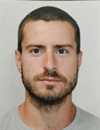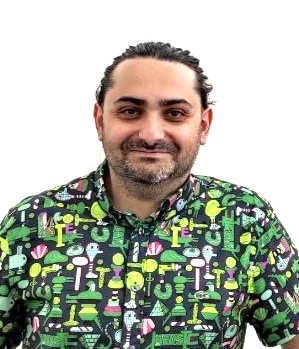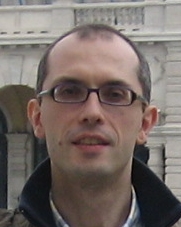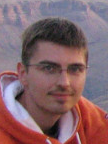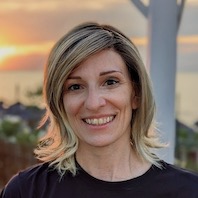Training and Research
PhD Programme Courses/classes - 2024/2025
Advanced techniques for acquisition of biomedical images
Credits: 1
Language: Ingelese
Teacher: Pietro Bontempi, Federico Boschi
Algorithmic motion planning in robotics
Credits: 1
Language: Italian
Teacher: Paolo Fiorini
Brain Computer Interfaces
Credits: 3
Language: Inglese
Teacher: Silvia Francesca Storti
Data visualization
Credits: 1
Language: Italian
Teacher: Andrea Giachetti
Explainable AI models: state of the art, promises and challenges
Credits: 2,5
Language: Italian
Teacher: Gloria Menegaz
Foundation of Robotics Autonomy
Credits: 1
Language: Italian
Teacher: Paolo Fiorini
Generative AI
Credits: 1,5
Language: English
Teacher: Francesco Setti
Modellazione e analisi 3D
Credits: 1
Language: Italian
Teacher: Andrea Giachetti
Modellazione e verifica di sistemi digitali
Credits: 1,5
Language: Italian
Teacher: Franco Fummi, Nicola Bombieri, Graziano Pravadelli
Nanomaterials: synthesis, characterization and applications
Credits: 1
Language: Italian
Teacher: Francesco Enrichi
Soft robotics: from nature to engineering
Credits: 1,5
Language: Italian
Teacher: Francesco Visentin
Techniques and algorithms for biomechanics of movement
Credits: 2,5
Language: Italian
Teacher: Roberto Di Marco
Theranostics: from materials to devices
Credits: 1
Language: Italian
Teacher: Nicola Daldosso
Brain Computer Interfaces (2024/2025)
Teacher
Referent
Credits
3
Language
Inglese
Class attendance
Free Choice
Location
VERONA
Learning objectives
The aim of this course is to propose an introduction to the basics of Brain Computer Interfaces (BCI) principally based on oscillatory EEG activity from a signal processing point of view. The course will introduce the main data processing methods that allow to decode brain activity in real time and convert it into a control signal for a BCI. In the first part the students will learn the following topics: the BCI model, the main BCI types with relative basic signal processing techniques for feature extraction and classification, the performance of the systems, the limitations of the current paradigms and the broad range BCI applications. The second part will cover practical BCI design and use, with an introduction to real-time processing of EEG recordings. Collaboration among students with different backgrounds will be encouraged through research-oriented practical group projects.
Prerequisites and basic notions
The recommended prerequisites of the course are basic familiarity with signal processing and programming in Matlab.
Program
- Introduction to the BCI model. Motivation for BCI. Its historical context and recent approaches. The BCI technology.
- Applications: in medicine, prevention of risk situations, smart environments, gaming etc.
- Invasive and non-invasive BCIs
- EEG-based control signals: evoked (e.g., SSVEP and P300 speller) vs. self-paced.
- Signal processing (filtering, feature extraction, classification) and the interpretation of the results.
- Kinesthetic motor imagery and introduction to a typical architecture of EEG-based MI-BCI (calibration and usage phases).
- The role of machine learning in BCIs.
- The classification problem and how to access performances.
- Case studies.
Laboratory. The lab involves implementing an MI-BCI interface in Matlab. Students will use EEGlab to create Matlab scripts and work on EEG-BCI data, filtering the data, extracting features like power spectral density, coherence, and correlation in the frequency bands of interest, implementing a classifier to distinguish different imagined movements. Finally, they will interpret the results obtained.
Bibliography
When and where
Borgo Roma, Ca’ Vignal, Room to be defined.
Tentative Schedule
• Tuesday, March 11, 2025
• Tuesday, March 18, 2025
• Tuesday, March 25, 2025
• Tuesday, April 1, 2025
• Tuesday, April 8, 2025
• Tuesday, April 15, 2025
Learning assessment procedures
The exam consists in developing a short project in Matlab for analyzing EEG-BCI data. This task will require students to apply the knowledge gained during the course, facing challenges related to processing and interpreting brain signals.
Assessment
To pass the exam, the students must show that: - they have understood the theoretical and practical concepts of the course; - they are able to use the knowledge acquired during the course to solve the assigned problems related to the processing of EEG-based BCI signals; - they are able to program in MATLAB environment in the context of signal processing.
Criteria for the composition of the final grade
Pass/no pass.
PhD school courses/classes - 2024/2025
PhD School training offer to be defined
Faculty
Marziliano Pina
PhD students
No people are present. 40° Ciclo not started.
Loading...
Guidelines for PhD students
Below you will find the files that contain the Guidelines for PhD students and rules for the acquisition of ECTS credits (in Italian: "CFU") for the Academic Year 2024/2025.

 nicola.bombieri@univr.it
nicola.bombieri@univr.it
 +39 045 802 7094
+39 045 802 7094
